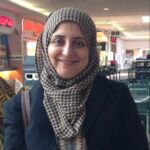New innovative employment programs aim to integrate government-assisted refugees (GARs) into the Canadian labour market.
At the Employment Pathways for Refugees forum at the 18th Metropolis conference 2016 in Toronto, experts discussed how to help refugees find work, not only to help them earn money but also to provide them with a sense of belonging in society.
This is one of several challenges presented by the current large-scale refugee influx that were at the forefront of the panelists’ discussion. These included cultural, language and low-skill barriers.
To tackle these barriers, the private sector is implementing innovative pilot projects based on the demographics and needs of GARs during their first year in Canada.
Creative inclusion of Syrian refugees in BC
The British Colombia Construction Association (BCCA) is one organization with programs to integrate GARs in the B.C. construction industry. The association represents 2,000 employers in the industry.
Abigail Fulton, vice president of the BCCA, explained that the program starts by identifying an existing employee who can speak English and Arabic. With the help of the worker, they identify individuals within refugees groups, assess their abilities, create a pod of workers and help them get their first jobs in Vancouver’s construction industry.
“We just started and identified two pods, one as carpenters and one as roofers,” she says. “These people can have a Canadian experience and a sense of belonging as they move on in the construction industry.”
She said the employers are happy too, as they get to hire people with good experience and who are trained by a bilingual employee.
“These people can have Canadian experience and a sense of belonging.”
According to Fulton, there is lot of potential in the province’s construction industry based on the projects that are being implemented. She suggests that there will be 45,000 openings in the industry over the next few years.
“Syrians are here just in the nick of time. They have the background of the industry and we want to take advantage of that.”
Government programs
At the same time, Immigration, Refugees and Citizenship Canada (IRCC)’s Policy Innovation Division is planning to test more than 50 projects across the country this fiscal year, all under $5,000 each.
“We have to test with new partners, new models [as to] how can we get Syrian refugees into labour market,” says Natasha Pateman, director of Policy Innovation Division.
The projects work with 500 organization across Canada and aim to tackle the large-scale refugee influx in the future, particularly regarding refugees with low skills and low language abilities. In addition, they intend to help children and women with integration and language support.
“We will test how we can provide programming for children and teach them English and French, provide adults with social connections and employment connections in a great variety all across the country,” she says.
“Syrians are here just in the nick of time.”
“One of the groups I am working with that provides entrepreneurship facilities to newcomers, they are planning to work with refugee women who want to sew again. We were able to purchase a couple of sewing machines and will now upgrade their skills,” says Pateman
The process of identifying opportunities goes through the National Settlement council, after which settlement working groups further distribute information through their networks.
“Probably in a week, we might have all the contracts done. Then it will take some time to call in lists based on teams and geographical locations,” Pateman explains.
She elaborated on some of the projects that were tested last year, including one with Syrian refugee women in St John’s, Newfoundland.
It was based on identifying different herbs and spices that Syrians use in their foods that are not available in the province. These women were taken to local Sobeys and Bulk Barn grocery stores to find similar items so that they could prepare food from their culture.
“It was an interesting way of social interaction and establishing connections,” adds Pateman.
She says they are talking to both women and men about opportunities in Canada and getting them into the labour market. “We talk to their husbands to let their wives work outside. It’s not negative in Canada, or negative to leave your child at daycare,” she adds.
Employment provides psychological support
Attendees suggested that it’s important from the mental health perspective to integrate traumatized refugees into society.
Dr. Michaela Hynie of York University said this is very important both for one’s sense of belonging in Canada and to feel like one is respected in the society.
“When we think why employment is important, its not just the contribution to a family as income, but also important for other kinds of integration outcomes,” she says.
IRCC’s Policy Innovation Division is planning to test more than 50 projects this fiscal year
While she complimented the idea of devising creative ways for refugees to access employment, Hynie says she thinks the employment sector will have to learn more about the challenges refugees face when looking for work.
“Employment is important whether it provides adequate income, whether the employment is secure or whether the employment can provide opportunities for development and growth. It’s important for the individual and for the Canadian society as a whole,” she concludes.
Tazeen is based in Mississauga and is a reporter with the New Canadian Media. Back in Pakistan where she comes from, she was a senior producer and editorial head in reputable news channels. She holds a master’s degree in Media and Communication and a certificate in TV program production from Radio Netherlands Training Center. She is also the recipient of NCM's Top Story of 2022 award for her story a "A victim of torture, blogger continues fight for human rights in Pakistan"





